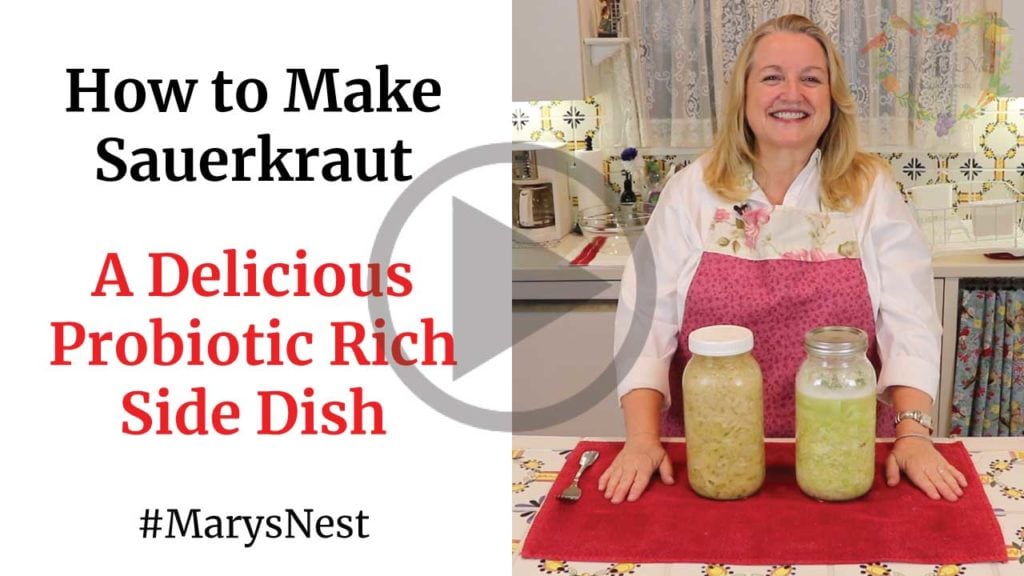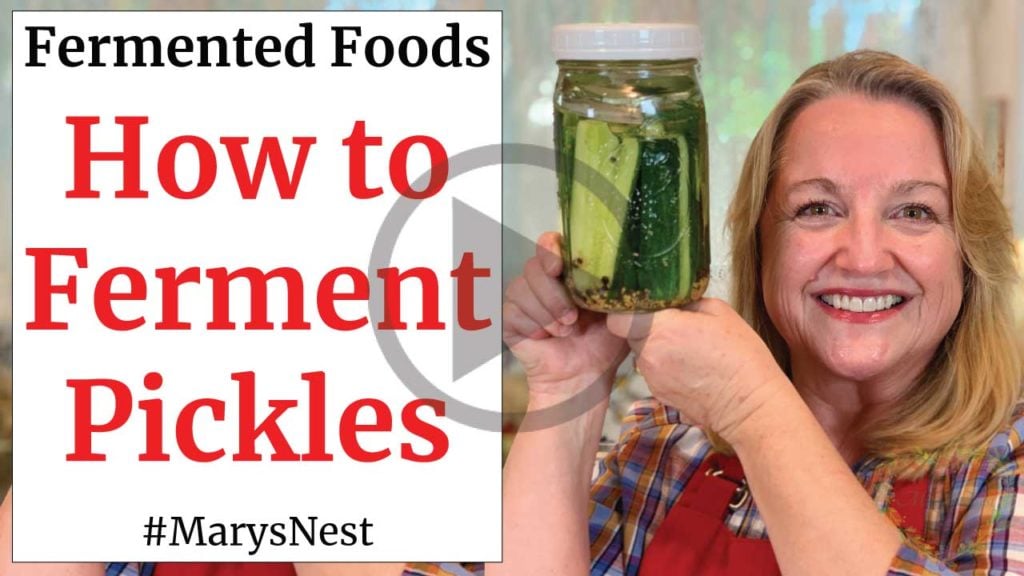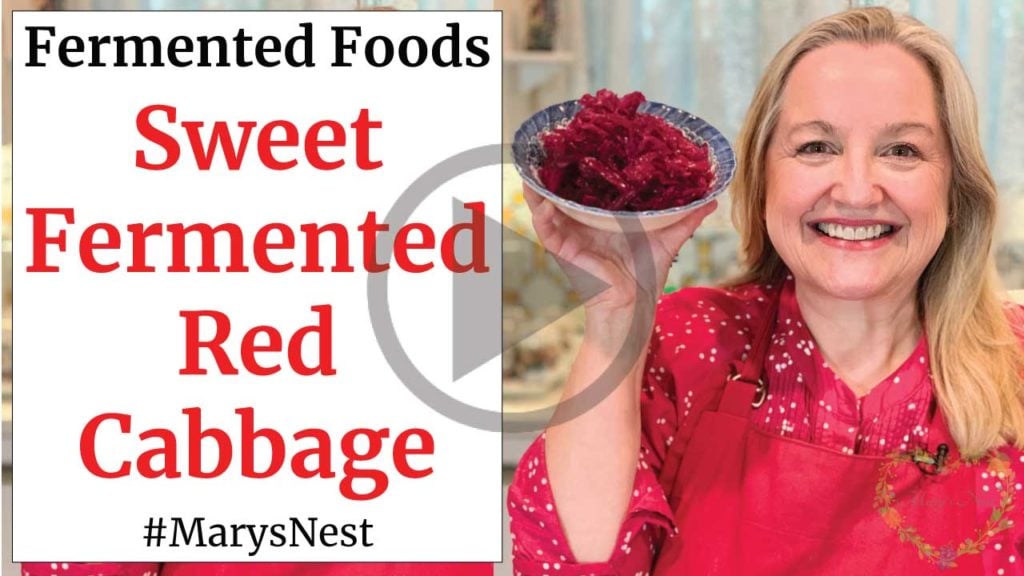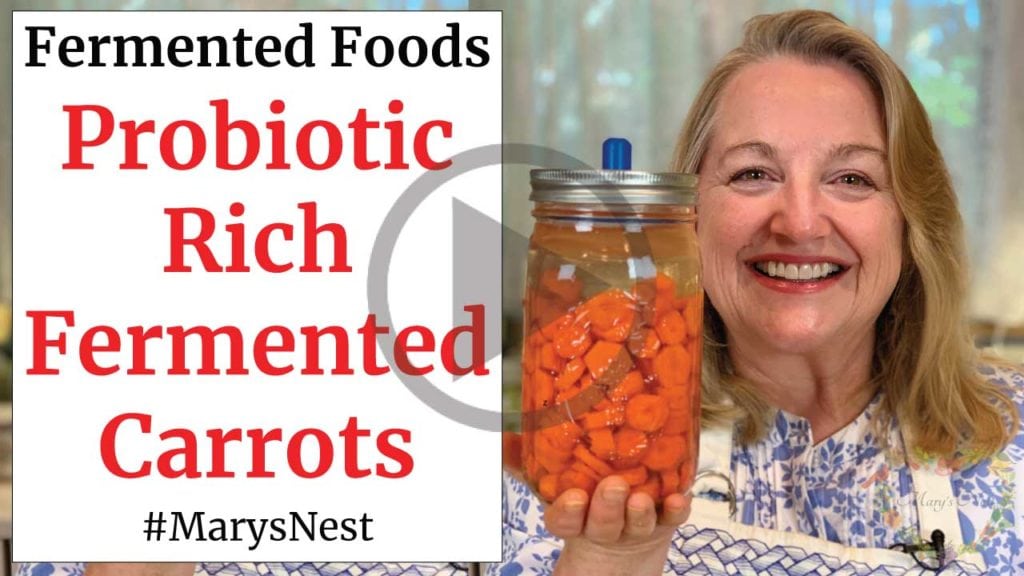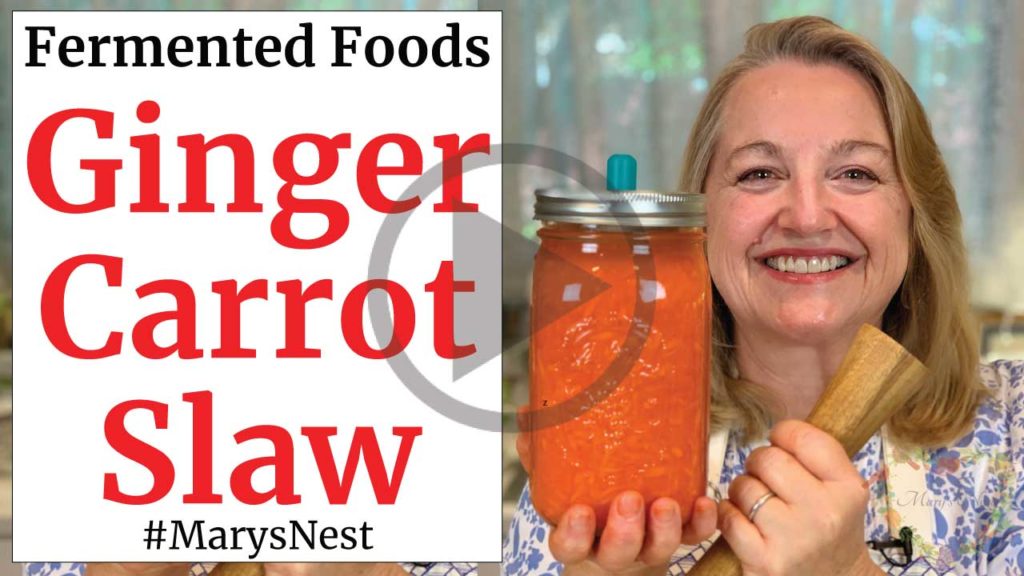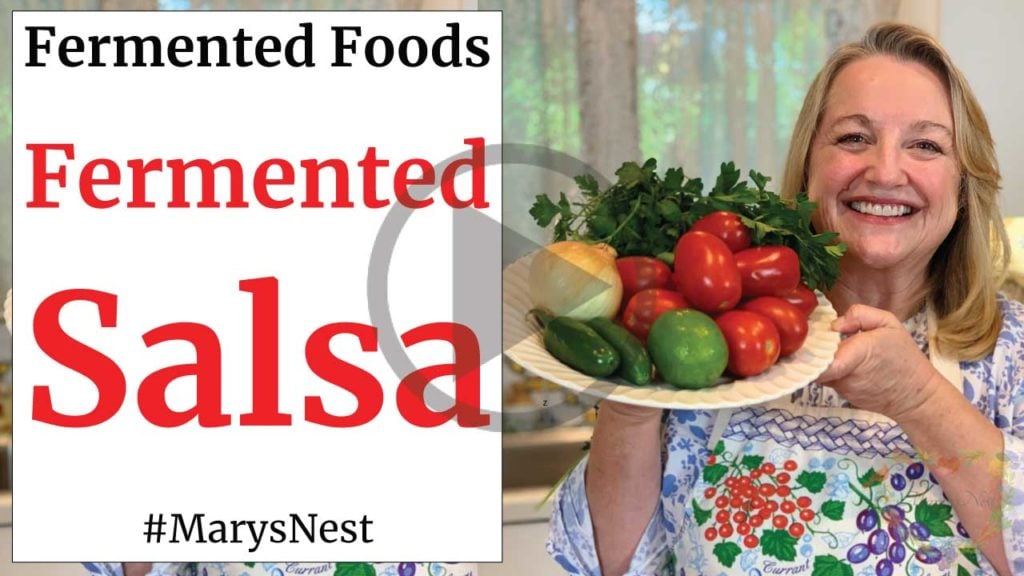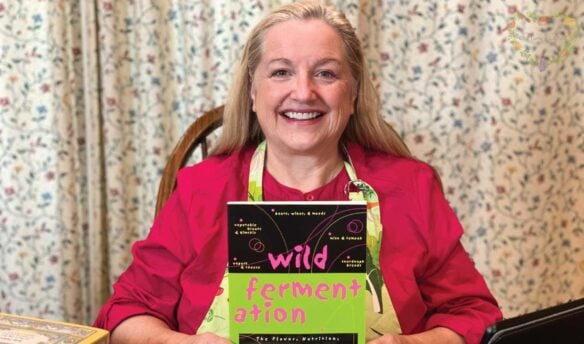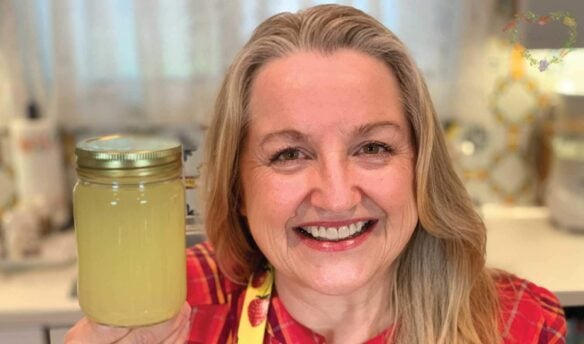Affiliates note: As an Amazon Associate I earn from qualifying purchases. My content may contain affiliate links to products and services. If you click through and make a purchase, I'll receive a small commission. It does not affect the price you pay.
Why Is My Ferment So Salty and Other Fermentation Questions
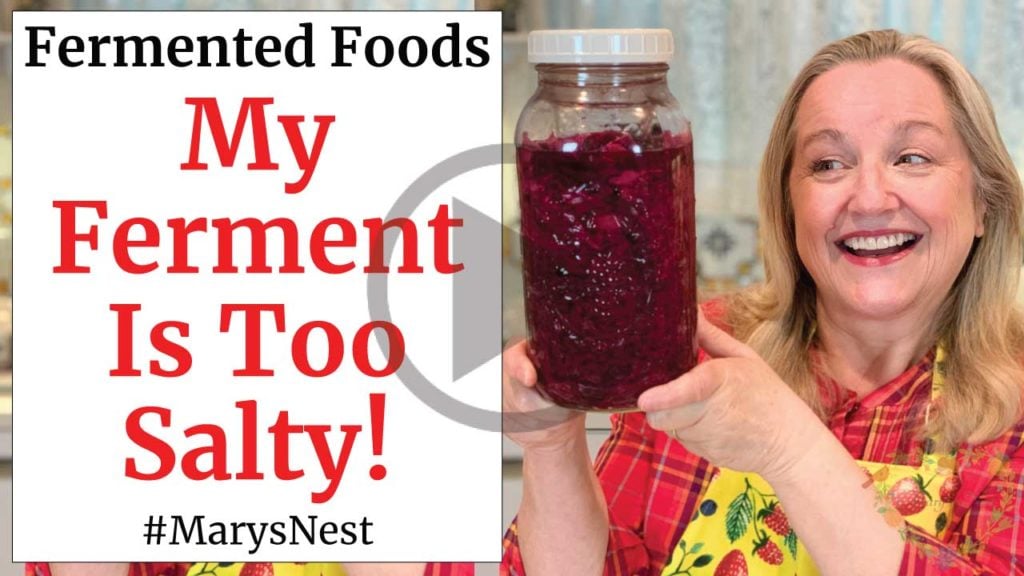
Probably the one topic I receive the most comments and emails about are ferments. And they often start with the line…”My ferment is too salty! What happened?” But have no fear! In today’s video, I answer this question and a bunch of other questions…all about vegetable fermentation.
Why Is a Vegetable Ferment SO Salty?
The truth of the matter is that ferments actually aren’t salty tasting at all—at least not over time. Initially, yes, they will taste salty if you try them after only a few days of fermentation. But given time, the fermenting vegetable will absorb more of the brine, which will disperse and dilute the salt from the brine throughout the whole vegetable. This part of the fermentation process makes the vegetable tastier and tangier. After the fermentation process ebbs, the remaining brine that clings to the vegetable has less salt in it, and this contributes to vegetable’s less salty taste.
Do I Really Need All That Salt for a Ferment?
Ferments require a good amount of salt in their preparation for a number of reasons:
- The salt helps to tamp down the formation of bad bacteria, enabling the good bacteria to take a foothold.
- The salt plays a role in keeping the vegetable crisp.
But if you are on a salt-restricted diet, can you cut back on the amount of salt you need to start a vegetable ferment? Yes, you can, and you have a few options.
You can cut the amount of salt that you need for a particular fermentation recipe in half if you add in whey or brine from a previous ferment to your new batch of vegetables for fermentation. Generally, a quarter of a cup of whey or brine is sufficient for anything from a quart-sized jar portion to half-gallon sized portion.
And What If I Don’t Want To Use Any Salt?
But what about the option of using no salt at all? I have not tried this route, but Sandor Katz, author of the Wild Fermentation and The Art of Fermentation books, states it can be done. So if you want to make vegetable ferments without any added salt, I highly recommend checking out his books.
Katz’s books are also helpful if you’re going to delve more deeply into learning everything you can about fermentation. With his in-depth experience, Sandor Katz is your go-to resource! He covers every aspect of fermentation from vegetables to sourdough starters.
Watch the Video for More Fermentation Answers
So be sure to watch my fermentation video where I talk about salt and fermentation and where I address additional common questions about ferments, including how to use pH strips to check for the correct level of acidity, where the best place is to store vegetable ferments, and more!
More Fermentation Videos
Now that we’ve covered some of the most common vegetable fermentation questions, it’s time to jump in and start fermenting! Be sure to check out these great vegetable fermentation videos!
Stay in Touch with Mary’s Nest
- Subscribe to My YouTube Channel for Traditional Foods Videos (Free) - When you subscribe, be sure to click on the notification bell that will let you know each time I upload a new video.
- Subscribe to Mary’s Traditional Foods Newsletter (Free) - Get a free 36-page eBook for signing up: How to Stock Your Essential Traditional Foods Four-Corners Pantry.
- Join the Traditional Foods Kitchen Academy (Optional Paid) - For more detailed videos and exclusive members-only perks, join my YouTube membership community.
- Order The Modern Pioneer Cookbook (Optional Paid) - Get a printed book of Mary's nourishing recipes from a Traditional Foods Kitchen. This bestselling cookbook is published by Penguin Random House with their DK imprint.
I look forward to having you join me in my Texas Hill Country Kitchen!
Shop for items used in this blog post or video
Favorite Fermentation Supplies
Favorite Masontops Supplies
- Masontops Complete Fermentation Kit
- Silicone Pickle Pipes
- Fermentation Glass Weights
- Wooden Pickle Packer
Use promo code MARYSNST for a one-time 15% off Masontops and Breadsmart products on Amazon.com.
Recommended Reading
Amazon Shop and Shopping Guide
- Visit Mary’s Nest Amazon Shop
- Visit my Shopping Guide page
Get up to 15% off for stocking your Traditional Foods Pantry and equipping your Modern Pioneer Kitchen, including discounts from US Wellness Meats, Farmhouse Teas, Lehman's, Masontops, Cultures for Health, Survival Garden Seeds, Redmond Real Salt, Plan to Eat, and More!
Affiliates note: As an Amazon Associate I earn from qualifying purchases. My content may contain affiliate links to products and services. If you click through and make a purchase, I’ll receive a small commission. It does not affect the price you pay.
Disclaimer:I am not a medical doctor, a medical professional, a dietician, or a nutritionist. All content found on the MarysNest.com website, including text, images, videos, eBooks or eGuides, social media, or other formats, were created solely for informational purposes only. The content is not intended to be a substitute for professional medical advice, diagnosis, or treatment. Always seek the advice of your physician or other qualified healthcare provider with any questions you may have regarding a medical condition or proper nutritional advice. Never disregard professional medical advice or delay in seeking it because of something you have watched in a video or read on this website. Use caution when following the recipe in this video. The creator and publisher of this video and website will not be held responsible for any adverse effects that may arise from the use of this recipe and method or any other recipe and method on this website or corresponding video channel.
